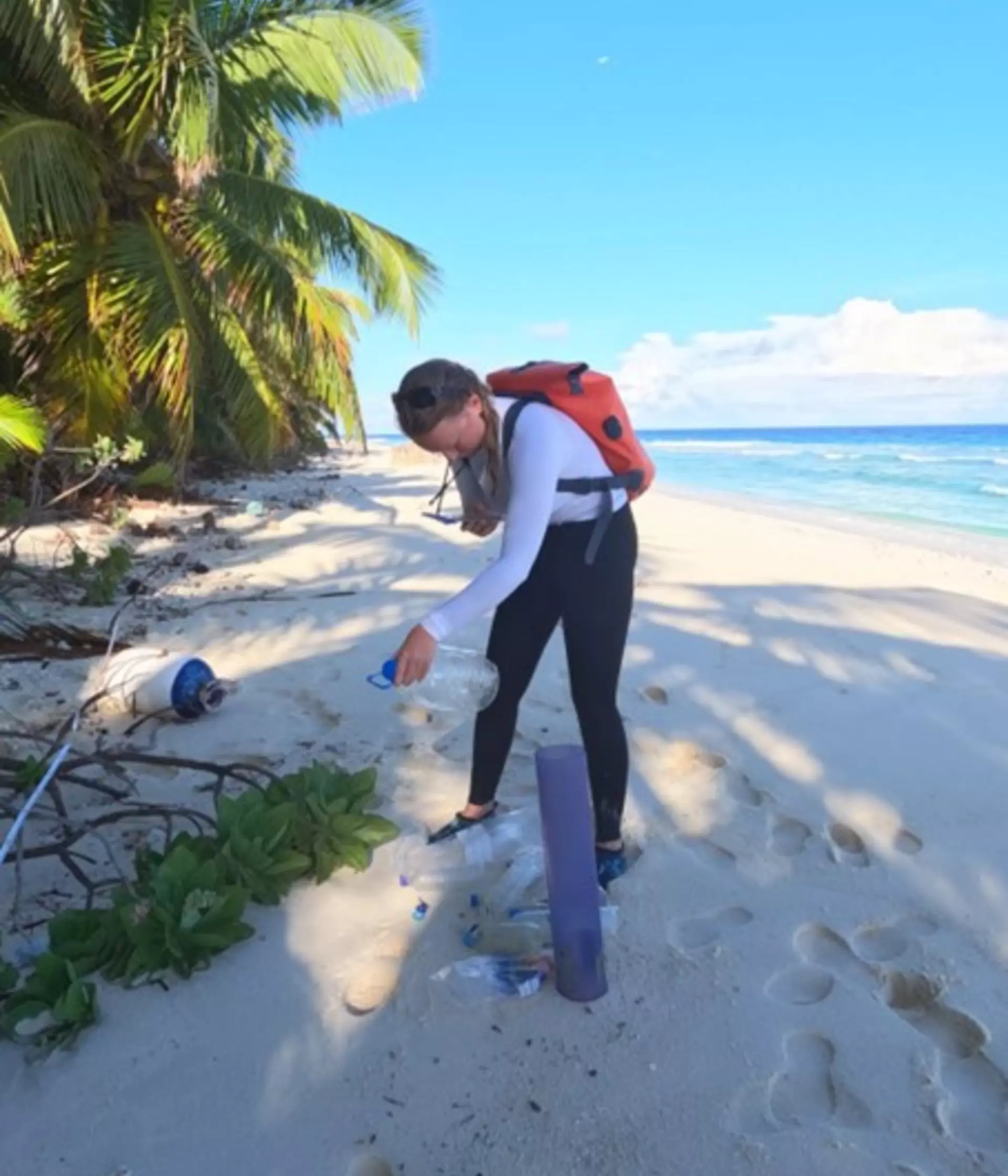Jessica Savage
PhD Researcher
New research reveals that almost 3/4 of bottles on a remote archipelago were manufactured by major food and drinks brands the Coca Cola Company and Danone. Lead author Jessica Savage dives into the plastic problem and why manufacturers must be held accountable for their waste.
The plastic problem
Plastic started off as a wonder material, with the ability to make our lives easier, but its durability is also its downfall, lasting in the environment for millennia! Plastic production has been projected to triple by 2060, resulting in ever more debris in the ocean. These debris items can cause a range of negative impacts on marine species, from entanglement to ingestion. Not only does this reduce their overall health – and in some cases lead to death - but the chemicals that give plastic its amazing properties (for example flexibility, or durability) have been linked with hormone disruption in many marine species, further impacting health and breeding success. It’s therefore of high importance to stop plastic debris entering the system at the source.
Remote islands are particularly affected by plastic debris
The Chagos Archipelago, a remote Marine Protected Area (MPA) in the Indian Ocean, is incredibly special for many species. It provides nurseries for black tip reef sharks and nurse sharks, and it is a crucial nesting habitat for green and hawksbill turtles in the area.
Standing on the sandy beaches of the archipelago, look out to the sea and you’ll see a pristine untouched tropical paradise. Turn back on yourself 180 degrees, and the sight is suddenly very different. From plastic bottles to unpaired flipflops, the beach is littered in debris trapped amongst the driftwood and trees than line its sandy border. Not only is this patchwork of rubbish upsetting to see, but it can impact the nesting efforts of the turtles, and poses a risk of ingestion to all the species that call Chagos home.
Who is responsible for plastic pollution?
With only one island currently inhabited, the waste management system on the Chagos Archipelago is self-contained. Where does all this debris come from then?
This is what our study, published in Marine Pollution Bulletin, aimed to investigate. During two expeditions to the archipelago, one in 2021 and the other 2022, we collected information from plastic drink bottles and loose lids to infer their origins. The barcodes can tell us where the item was manufactured. The brands let us know what type of drink the bottle contained. Finally, from the manufacturing date we can work out how long the item has been in the ocean
We found that 99.9% of the items came from elsewhere around the Indian Ocean, and estimated that 10% came from shipping and fishing activity around the MPA. The drink type was mainly water, and 72% of items were manufactured by The Coca-Cola Company and Danone. Large food and beverage multinationals make up most of the plastic debris found worldwide (check out the brand audits done by BreakFreeFromPlastic)
Why does this matter?
The United Nations are currently negotiating the Global Plastics Treaty which ZSL has been very involved in, contributing our expertise from spending over a decade working with local communities to understand the impacts of plastics pollution, and how we can stop it entering the environment from the beginning.
As the authors of this study, we are calling for the Treaty to hold these large brands accountable for the plastic they produce, by supporting Extended Producer Responsibility - a policy that will make manufacturers responsible for their products across their entire lifecycle. By broadening the accountability of big brands, we will be able to shift the responsibility (and high costs!) of clearing the debris from small island nations to large multinationals producing the plastic. Since the same brands come up in most brand audits, action from a few could have a huge impact on this global problem!
Plastic pollution is undoubtedly a huge problem that impacts both humans and wildlife across the globe. While scientists around the world continue to research its risks and create solutions, every one of us can continue our efforts on a local level, be that by taking part in a volunteer beach clean, or writing to your local council and MPs to keep the issue at the forefront of their mind. By working together we can minimise the risk it poses to our natural environment and all who live in it.
Read more about ZSL's position on the Global Plastics Treaty
Climate change and human activity have pushed our precious planet to its limit, causing the devastating loss of so many habitats and species. From lab to field, hands on and behind the scenes, we’re leading the future of conservation, shaping agendas and influencing change to support better life, health and living for people and wildlife.
